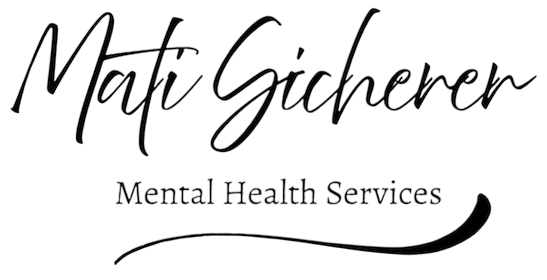When Every “No” Feels Like a Personal Attack: Understanding Rejection Sensitive Dysphoria in ADHD Therapy
If you live with ADHD, you might already know how frustrating it can be to lose track of time, get distracted mid-task, or juggle the chaos of everyday life. But what often goes unspoken—yet cuts just as deeply—is the emotional pain that comes with perceived rejection or criticism. This experience has a name: Rejection Sensitive Dysphoria (RSD).
And for many clients in ADHD therapy, it’s one of the hardest parts of living with an ADHD brain.
What Is Rejection Sensitive Dysphoria?
Rejection Sensitive Dysphoria isn’t an official diagnosis, but it’s a term that resonates strongly with people who have ADHD. “Dysphoria” means intense discomfort or emotional distress—and in the case of RSD, that distress is triggered by real or perceived rejection, disapproval, or failure.
Someone with RSD might:
Feel devastated after a seemingly small critique
Replay a conversation for hours, convinced they said the wrong thing
Avoid situations where they could be judged
Experience intense shame when they feel they’ve disappointed someone
It’s not just about being “sensitive.” RSD can hijack your nervous system and leave you emotionally flooded, shut down, or spiraling in self-doubt. For many people, these reactions are instantaneous and overwhelming—far beyond what the situation might warrant on the surface.
Why Does RSD Show Up in ADHD?
The emotional regulation challenges that come with ADHD play a big role in RSD. People with ADHD often experience emotions more intensely and have a harder time hitting the brakes once their nervous system is activated.
Combine this with a lifetime of being misunderstood, criticized for not meeting expectations, or feeling “different” from peers—and you have the perfect storm. By adulthood, many people with ADHD carry emotional wounds from years of perceived failure and rejection, even when they’ve accomplished a lot.
In therapy, I often hear things like:
“I know it’s not a big deal, but I can’t stop thinking about that email.”
“If someone’s even slightly disappointed in me, I spiral.”
“I avoid dating or group settings because I can't handle being judged.”
RSD is deeply personal—and it often goes unrecognized because it hides behind shame, perfectionism, or conflict avoidance.
How ADHD Therapy Can Help with RSD
Working with a therapist who understands ADHD and approaches it from a neurodiversity-affirming lens can make a profound difference. Therapy won’t erase sensitivity (and that’s not the goal!), but it can help you relate to it differently.
In ADHD therapy, we might work on:
1. Identifying the RSD Cycle
Understanding the pattern is a powerful first step. You’ll begin to notice the internal shift that happens when rejection—real or imagined—shows up: the thoughts that race through your mind, the physical sensations, the stories you tell yourself.
Bringing awareness to this pattern creates a little space. And in that space, you can begin to choose something different.
2. Building Emotional Regulation Tools
You’ll learn tools to ground yourself when emotions feel intense. This might include breathing techniques, self-talk strategies, or movement-based practices to soothe your nervous system. The goal isn’t to eliminate emotional responses, but to help you ride the wave without getting pulled under.
3. Healing Old Wounds
Sometimes, what feels like a current trigger is tied to older pain—times you felt rejected, belittled, or invisible. Therapy can offer a space to grieve and release those past hurts so they stop running the show today.
4. Rewriting the Narrative
RSD often feeds on harsh inner stories: “I’m too much,” “I always mess up,” “No one really likes me.” Therapy helps you challenge and reframe those narratives. Instead of reacting from fear, you start responding with compassion.
Living with ADHD Doesn’t Mean Living in Fear of Rejection
If RSD is part of your ADHD experience, you’re not broken—and you’re definitely not alone. Your sensitivity isn’t a flaw; it’s a part of your nervous system that’s been overstretched by years of misunderstanding and unmet needs.
With the right support, you can learn to navigate rejection without it undoing you. You can build more resilience, deepen your relationships, and stop avoiding the things that matter most.
Looking for ADHD Therapy in Fair Lawn, NJ?
At Mati Sicherer Mental Health Services, I offer trauma-informed, neurodiversity-affirming therapy for adults navigating ADHD and related challenges like RSD. If you're tired of walking on emotional eggshells and want to feel more grounded and confident in your relationships, I’m here to help.
Reach out today to schedule a free consultation and begin ADHD therapy that honors your experience.

